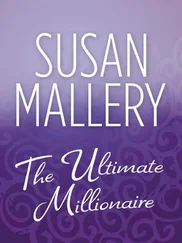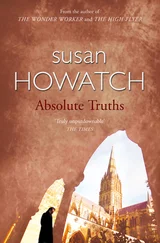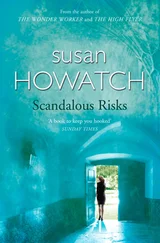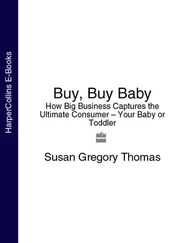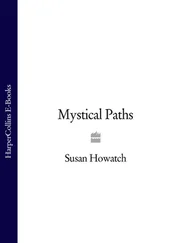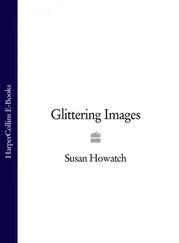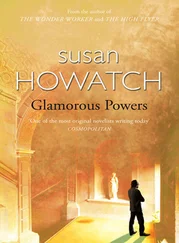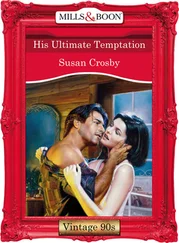‘And now, Miss Tallent, if you’re still conscious after my diatribe against neo-orthodoxy, I shall end this sermon by apologizing for writing to you at such length. Should you, however, be interested in hearing more about Liberal Protestantism, I can describe in my next letter the thought of the quintessential Liberal Protestant of the twentieth century, Dr Charles Earle Raven, a former canon of Liverpool Cathedral who’s currently Regius Professor of Divinity at Cambridge and Master of Christ’s College. As I’ve already mentioned, his more extreme flirtations with Modernism are best ignored, but his general credo is one with which I find myself profoundly in sympathy …’
I thought that having wheeled on the heavy intellectual artillery I might have reduced Dido to a bemused silence, but never was I more mistaken. Replying by return of post she embraced my cannon-fire with delight.
‘… and I can’t tell you how grateful I am to you for taking the time and the infinite trouble to introduce me to this new world where I feel sure my future husband is lurking behind some Liberal-Protestant-Modernist bush! What a romantic name Charles Raven is! I feel he ought to be a hero in a novel by Elinor Glyn. Is he handsome? And how old is he? More details, please – oh, and when you write back, could you explain what difference there is, if any, between “idealism” and “Idealism” with a capital I? Liberal Protestants sound beautifully idealistic, so romantic, but on the other hand William Temple, who is said to be a Platonic Idealist (among other things), must need to be very down-to-earth and unromantic as he’s the Archbishop of Canterbury and obliged to deal with all the cynical politicians. What is this Idealism which belongs to Plato? Explain, please!
‘What worries me is that idealists (in the colloquial sense) aren’t usually successful in life and I need to marry a potentially successful husband so that my social gifts can come into full play. But on the other hand perhaps the Church is the one place where idealists can be madly successful with the result that the episcopal bench in the House of Lords is simply littered with idealists – like that extraordinary Bishop of Chichester, George Bell, who’s always saying we mustn’t be beastly to the Germans who aren’t Nazis, although how he expects us to separate the wheat from the chaff when they’re up in the sky bombing us to bits, I really can’t imagine.
‘Oh, how I’d love to be a bishop’s wife! I’d run the episcopal palace very efficiently and organize gorgeous garden-parties for the diocesan clergy and give fascinating little dinner-parties for sixteen every week and I’d raise lashings of money for the Poor and dress very tastefully whenever I had to open a fete, and I’d wear wonderful hats when I visited the House of Lords to hear my husband speak – and I’d behave beautifully at Lambeth and Bishopthorpe whenever we were invited for a weekend with the Archbishops, because by that time I’d be well-educated and serious-minded and quite different from the ignorant creature I am now. I’m sure some future bishop must see my potential if only I can meet him – and I’m beginning to see him quite clearly now in my mind’s eye.
‘I want a Liberal Protestant ( definitely not an Anglo-Catholic or a neo-orthodox Protestant) with Modernist leanings, and he must be a few years older than me, but not too old, say around forty – in the prime of life – and being nouveau riche myself I shan’t mind if he’s not blue-blooded so long as he speaks correctly and knows how to behave. He should be an Oxford man but a Fellowship of All Souls is not essential. (One can’t have everything.) He should have a deep voice – so masculine – and preach sermons which make me want to cry (I always cry when I feel spiritually uplifted) but he shouldn’t rant and roar. His manner should be cool, austere and dignified.
‘I shan’t mind if he’s not handsome but he must have something about him which is irresistibly attractive – deepset blue eyes perhaps (so heroic) – or a high forehead or broad shoulders or (most scrumptious of all) a very straight firm mouth which represents a MASTERFUL NATURE. I’ve never seen the point of pursuing the sort of man who allows a woman to trample all over him. Men must be men , otherwise why bother, one might just as well live with a woman. I’m sure there must be quite a few men in the Church of England or else it wouldn’t be such a powerful national institution, although bounders like Rollo always say that the men who are against fornication are always the ones who are incapable of it. But bounders like Rollo have no choice but to say that, have they? It’s the only way they can make their weakness look like strength.
‘Well, Archdeacon dear, I’ll stop prattling now, but do write soon – don’t leave me in suspense for a whole week this time – and make sure you give me a few tips on how I can spot a neo-orthodox supporter at fifty paces and take immediate evasive action. Ever your devoted disciple, DIDO TALLENT. P.S. What is soteriology?’
I phrased my reply to this last question when I was shaving. I looked into the mirror at my deepset blue eyes, my high forehead and my straight firm mouth and thought: My dear Miss Tallent, the word ‘soteriology’ refers to matters pertaining to salvation, a state which may well elude you if you continue to write flirtatious letters to a married man …
And I vowed to terminate the correspondence.
But I didn’t. Instead I wrote: ‘My dear Miss Tallent, I’m a clergyman, not a dictionary, so I shan’t waste time defining soteriology; I shall merely ask who’s been talking to you of soteriological matters! It sounds to me as if you’ve already brushed against a follower of neo-orthodoxy. Did he thunder that we’re all “under judgement”? If ever you hear this phrase, the odds are that you’re in neo-orthodox country and you should beat a quick retreat to more Liberal pastures.
‘Meanwhile rest assured that if I meet a Liberal Protestant with the kind of Modernist leanings which would never damage his chance of episcopal preferment, I shall unhesitatingly point him in your direction! Professor Raven, I fear, is quite unsuitable, being not only a non-starter as a bishop (see my previous letter) but far too old for you (nearly sixty). He’s also a married man – and I’m afraid you really can’t go around chasing married clergymen. “There’s no future in that,” as a clever woman bent on capturing a future bishop might say, and I think on the whole you’d be best advised to look for a husband of your own age. Men of forty nowadays are usually either married or homosexual. And now to intellectual matters. Platonic Idealism is the father of our colloquial “idealism”. The Greeks believed …’ And for a further two pages I wrote fluently on the subject of Plato’s philosophy.
I was just congratulating myself on conducting this exceedingly enjoyable correspondence with such faultless propriety – a correspondence which my perfect wife never once asked to see – when my harmless epistolary friendship began to swing stealthily out of control.
I was invited by Lady Starmouth to spend a weekend at the Earl’s country house.
‘Comfort, power, the applause and wonder of men – is there any Church in Christendom, or any Christian soul, not deeply tainted with these things?’
CHARLES E. RAVEN
Regius Professor of Divinity,
Cambridge, 1932–1950
The Cross and the Crisis
I was greatly surprised by the invitation. I had met the Starmouths through Alex soon after he had appointed me his Archdeacon in 1937, but they had remained mere distant acquaintances, and although Lady Starmouth had a reputation for befriending clergymen I had always suspected she found me too dull to merit her special attention. Certainly in her presence I had found it difficult to shake off a sense of social inferiority which made me appear shy and awkward. Yet now for some reason Lady Starmouth had decided to take trouble with me. Moreover in the same post I received a letter from the Earl himself saying that he did hope I was free to accept his wife’s invitation as he was most anxious to hear me preach. Would I deliver a sermon at his local parish church? Now I was no longer merely surprised. I was amazed and excited. Lord Starmouth was one of the most influential laymen in the Church of England and always spoke on important Church matters in the House of Lords. If he wanted to hear me preach I was indeed being thrust into the ecclesiastical spotlight.
Читать дальше
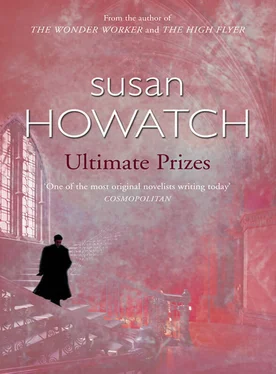

![W. R. Chambers Ltd. - W. & R. Chambers's Books, Suitable for Prizes and Presentation [1892]](/books/571823/w-r-chambers-ltd-w-r-chambers-s-books-suit-thumb.webp)
